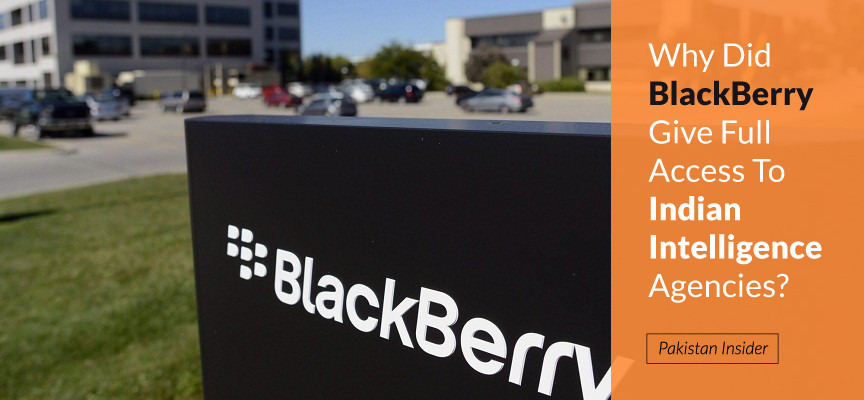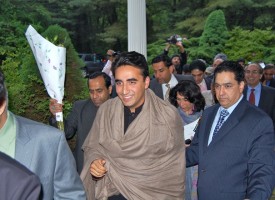I came across this rather distasteful announcement by Mr Marty Beard, Chief Operating Officer at BlackBerry Limited, which was published on November 30. The gist of his post is that BlackBerry is leaving the Pakistani market by the end of this year (allegedly) because of repeated government requests to allow interception into its enterprise servers. For those of you unfamiliar with the history, the product was launched by the erstwhile Research In Motion (RIM) and received worldwide acclaim because of its end-to-end encrypted communications, making it one of the most reliable and secure communications apps.
The disclosures made by NSA whistleblower Edward Snowden revealed that the world’s most notorious Signals Intelligence agency had also managed to install backdoors in BlackBerry’s ultra-encryption systems, rendering them effectively useless against interception. Some analysts reasonably inferred that BlackBerry’s sharp decline in sales must have compelled the company to “give in” to NSA’s pressure and (allegedly) give it the backdoor access it wants. The arguments they make are credible: Being a member of the ‘Five Eyes’ but still inferior in terms of technology and influence to bigger neighbor US, the Canadian firm must have been pushed by its domestic spy agency (CSIS) to fulfill NSA’s request “for the greater good”.
Mr Beard’s entire argument centres around the repeated emphasis on protection of customers’ confidential information and that BlackBerry has never denied basic anti-crime cooperation with law enforcement authorities. But whatever Mr Beard wrote appears to be hypocritical jargon in light of the fact that almost 3 years ago (August 2012 to be precise), BlackBerry gave Indian intelligence agencies complete and unfettered access to monitor its customers communications traffic and data in real-time.
This deal was revealed in a report by The Economic Times on August 2, 2012. A summary of the report is as follows:
• The Indian government had been fighting to get access to BlackBerry’s encryption keys since 2008 (or “key to its secret locks” in layman terms). In short, the battle between New Delhi and BlackBerry lasted for 4 years
• BlackBerry succumbed to the pressure and decided to comply with India’s demands for total surveillance and monitoring capabilities
• BlackBerry demonstrated to officials in New Delhi that a software developed by Israeli cyber intelligence firm Verint Infosystems can intercept messages/emails exchanged by BlackBerry users and make them readable for Indian security agencies.
• A BlackBerry spokesman had confirmed the arrangements that the company “is providing an appropriate lawful access solution that enables India’s telecom operators to be legally compliant with respect to their BlackBerry consumer traffic”.
• An official in the Department of IT & Telecom (DeitY) had confirmed to the newspaper reporter that Verint’s solution given by BlackBerry would allow monitoring of all corporate emails.
Most importantly, and here comes the interesting portion of the report, it says that BlackBerry had handed over servers and interception facilities in Mumbai to Indian agencies.
Mr Beard makes a valid point that BlackBerry has never allowed access to Enterprise Servers containing corporate data. India never got that too. But according to a report, India found an alternative method to get access to corporate data by asking BlackBerry for metadata or contacting private companies to give up their keys themselves. Indian government authorities were reportedly planning to press telecom giants such as Vodafone, Airtel and RCom to provide location information about 5000 BlackBerry Enterprise Servers across India.
Given India’s long-standing dispute with BlackBerry and the fact that in its case the Canadian company never threatened of exiting the market, it’s reasonable to conclude BlackBerry and New Delhi came to some secret conclusion. India’s pressure on only conditionally letting BlackBerry operate in the Indian market could only have subsided if it agreed to all of India’s demands. It couldn’t afford to lose out on the large market. On the other hand, Mr Beard’s blog post is clearly a tactic aimed at unnecessarily demeaning Pakistan.
What is even more absurd is that whether or not BlackBerry itself gives encryption keys to India’s government for its enterprise servers, Israeli company Verint Infosystems did it for New Delhi thanks to BlackBerry’s provision of user IP addresses, PINs, etc. In short, it gave New Delhi a house with one brick missing, which was filled by Verint. Ultimately, Indian agencies got the access they needed while BlackBerry publicly resisted government subjugation!
Leaving aside the issue of whether or not enterprise servers or messenger services were the objects of desire, the fact that BlackBerry has tolerated Indian agencies since 2008 (well over 7 years) while disgracing Pakistan’s similar requests with a complete industry exit exhibits severe bias.
Why wasn’t a similar reaction given against India back then? Mr Beard needs to answer this question.
image credit: androidcommunity







